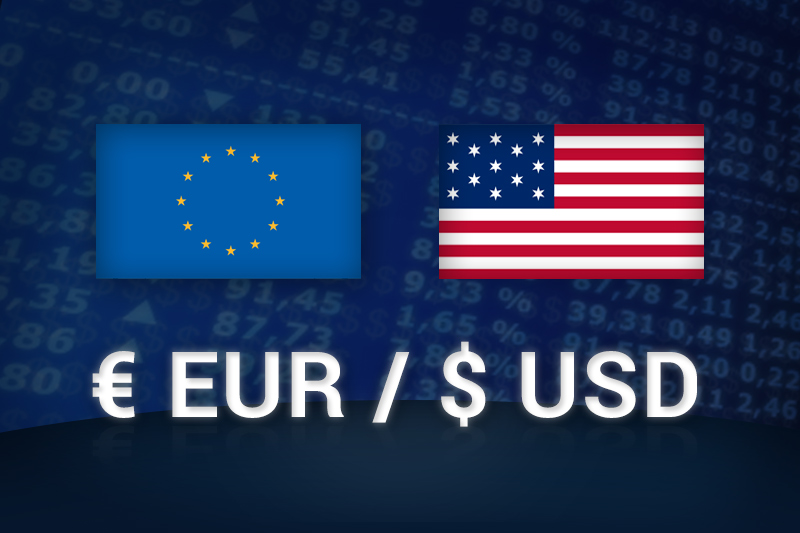Investing.com’s stocks of the week
Investing.com - The euro trimmed gains against the U.S. dollar on Thursday, easing off a seven-week high, but the greenback remained under pressure amid talk that the Federal Reserve is moving closer to implementing more economic stimulus measures.
EUR/USD pulled back from 1.2572, the pair’s highest since July 4, to hit 1.2539 during U.S. morning trade, up 0.09%.
The pair was likely to find support at 1.2430, Wednesday’s low and resistance at 1.2626, the high of July 3.
The dollar found support after official data showed that new home sales in the U.S. rose more-than-expected in July, climbing 3.6% to a seasonally adjusted 372,000 units in July, beating expectations for a 2.6% increase to 365,000.
Meanwhile, the U.S. Department of Labor said the number of people filing for initial jobless benefits rose by 4,000 to a seasonally adjusted 372,000 last week, compared to expectations for a decline of 3,000 to 365,000.
The previous week’s figure was revised up to 368,000 from a previously reported 366,000.
The data came after Wednesday’s minutes of the Fed’s August meeting showed that many policymakers think additional easing may be warranted "fairly soon" unless there is evidence of a "substantial and sustainable" strengthening in the economic recovery.
Concerns over the prospect of more easing by the U.S. central bank overshadowed weak manufacturing data out of the euro zone and China.
Earlier Thursday, data showed that euro zone manufacturing activity improved in August, but remained in contraction territory for the 12th consecutive month, while service sector activity slumped to a two-month low.
The euro zone’s manufacturing purchasing managers’ index rose to a seasonally adjusted 45.3 in August from a final reading of 44.0 in July, compared to expectations for a reading of 44.2.
The services PMI ticked down to 47.5 from 47.9 in July. Analysts had expected the index to dip to 47.7.
Manufacturing activity in Germany improved for the first time since January this month, but remained in contraction territory for the sixth consecutive month.
The euro was slightly higher against the pound, with EUR/GBP up 0.18% to 0.7904, but slipped against the yen, with EUR/JPY sliding 0.12% to 98.33.
Investors were continuing to eye a series of meeting in the euro zone, after German Chancellor Angela Merkel said Wednesday that no decision on extending Greece’s economic reform program would be taken this week.
EUR/USD pulled back from 1.2572, the pair’s highest since July 4, to hit 1.2539 during U.S. morning trade, up 0.09%.
The pair was likely to find support at 1.2430, Wednesday’s low and resistance at 1.2626, the high of July 3.
The dollar found support after official data showed that new home sales in the U.S. rose more-than-expected in July, climbing 3.6% to a seasonally adjusted 372,000 units in July, beating expectations for a 2.6% increase to 365,000.
Meanwhile, the U.S. Department of Labor said the number of people filing for initial jobless benefits rose by 4,000 to a seasonally adjusted 372,000 last week, compared to expectations for a decline of 3,000 to 365,000.
The previous week’s figure was revised up to 368,000 from a previously reported 366,000.
The data came after Wednesday’s minutes of the Fed’s August meeting showed that many policymakers think additional easing may be warranted "fairly soon" unless there is evidence of a "substantial and sustainable" strengthening in the economic recovery.
Concerns over the prospect of more easing by the U.S. central bank overshadowed weak manufacturing data out of the euro zone and China.
Earlier Thursday, data showed that euro zone manufacturing activity improved in August, but remained in contraction territory for the 12th consecutive month, while service sector activity slumped to a two-month low.
The euro zone’s manufacturing purchasing managers’ index rose to a seasonally adjusted 45.3 in August from a final reading of 44.0 in July, compared to expectations for a reading of 44.2.
The services PMI ticked down to 47.5 from 47.9 in July. Analysts had expected the index to dip to 47.7.
Manufacturing activity in Germany improved for the first time since January this month, but remained in contraction territory for the sixth consecutive month.
The euro was slightly higher against the pound, with EUR/GBP up 0.18% to 0.7904, but slipped against the yen, with EUR/JPY sliding 0.12% to 98.33.
Investors were continuing to eye a series of meeting in the euro zone, after German Chancellor Angela Merkel said Wednesday that no decision on extending Greece’s economic reform program would be taken this week.
